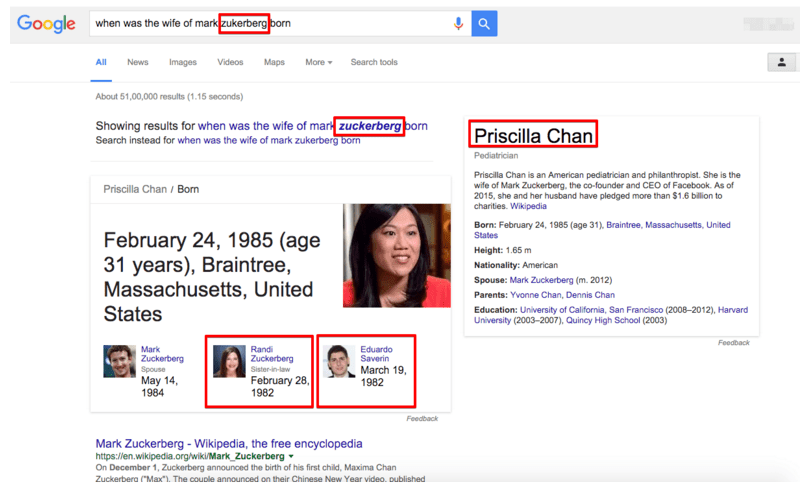Understanding Conversion Rate Optimisation and SEO after RankBrain


3 SEO techniques not to use and 3 recommended techniques to take advantage of Google’s RankBrain
Ever since Google unveiled RankBrain as the latest leap in their search algorithm’s efficiency just a day after Christmas last year, the ripples it created in the SEO universe have refused to settle down. That’s saying a lot. because RankBrain isn’t really even an algorithm update, it is actually a part of the current version of the algorithm named “Hummingbird” which dates back to a 2013 launch.
With Hummingbird, Google started paying a lot more attention to an entire search query rather than just the keywords. The mission of Hummingbird is to understand the overall context of a sentence and not just specific words. RankBrain takes this effort several steps forward.
Why is RankBrain creating such a noise? The answer is partly because it’s Google’s most recent big dig into using Artificial Intelligence for search and partly also because it has some of the best minds out there scratching their heads over “how to optimise for RankBrain”.
What sets this new AI feature apart from the other many changes that Google has brought in recently, is that it defies the common notions of SEO and forces content marketers and publishers to go back to the fundamentals. Chances are that you too came here looking for little tricks and hacks that is going optimise your content for RankBrain. You should certainly read on then.
What NOT to do to your content for RankBrain
1. Optimise for “verbose queries” to tackle language interpretations
RankBrain helps Google understand “verbose queries” when people make ambiguous searches or use colloquial terms. It is Google’s attempt at understanding the staggering 15% of its 3.5 billion daily searches that the giant has never seen before.
Language however, is immensely diverse. Optimising for search keywords is one thing and optimising for the infinite lingual variations of those keyword is a whole different ball game. Trying to tweak your content to include colloquially alternative keywords will not only be a turn-off to your readers, you might also find yourself going down the rabbit hole pushing money towards bidding for endless ad-groups on adwords based on such ambiguous keywords.
Let’s take an example: RankBrain will connect a keyword like “Einstein” to “Scientist”, “Messi” to “Football / Soccer midfielder”, “Google” to “Android”, “Android” to “Lollipop”, “Lollipop” to “Galaxy”, “Galaxy” to “Samsung”. However, and this is important, RankBrain will also potentially weigh out the probability of accurate connections between “Galaxy and Milky Way” and “Lollipop and Sweet”. Here’s a graph showing just first degree connections that RankBrain would make.
While for humans these are clearly-linked connections (and that’s the point of RankBrain), you can imagine how optimising on a web of taxonomically similar keywords would be an endless effort.
2. Confuse RankBrain with Knowledge Graph and Hummingbird
Although a RankBrain and Knowledge Graph marriage would be the ultimate goal Google might be moving towards, it is not quite there yet. Essentially, Rankbrain is more of a patch to Hummingbird towards evolving into a better semantic search engine.`
Hummingbird’s semantic search works using “search entities”. These entities include the actual query used, the documents connected to the query, the search session history during which the query was made, the time at which the query is submitted, anchor text of a link in a document, the advertisements presented in response to the query, and lots more.
RankBrain on the other hand, takes these “search entities” to predict the most accurate results to verbose and new queries that the search engine has never encountered before. The AI then uses probability scores as a metric to substantiate the search results.
An good example would be if we query something like below:

Here, you’ll notice RankBrain working together with Knowledge Graph and Hummingbird’s semantic search. Before RankBrain kicked in, the search results for this query would not have been this helpful. For instance, RankBrain connected Edwardo to the query and found the relevant Wikipedia document working hand-in-hand with Knowledge Graph and semantic keyword matching. Earlier, I would be required have “Priscilla” somewhere in the query for the results to be this in-depth.
As you can see, RankBrain makes heavier usage of search entities than Knowledge Graph which as a function decides how a combination of external objects are connected to a query. We can say it’s a model that explains how different pieces of content on the web are linked to one another.
Confusing RankBrain with knowledge graph will mean that you’ll start concentrating on optimising your pages other than the main landing pages for the same keywords with a hope that RankBrain picks them up. This will ultimately land your pages in a soup of keywords, anchor texts and sometimes even bad backlinks in order to create external objects connected to your pages. I am sure you are seeing where this is going – you will be unwittingly entering the ugly world of Gray Hat SEO.
3. Ask the wrong optimisation question: How can we optimise for RankBrain?
It should be pretty clear by now that this is the wrong to question to ask in the first place. RankBrain focuses on verbose queries riddled with colloquial phrases. Any good SEO specialist will tell you that it’s a bad idea to create individual pages for each long-tail keyword you discover for your niche. Similarly, trying to create pages or optimise existing ones for RankBrain queries is even less useful
So what SHOULD you be doing for RankBrain?
1. Optimise for content using semantic SEO practices:
Help humans and ultimately Google get a better understanding of what your content is all about and what the context of your pages are. Revisit your keyword strategy and create three levels of keywords – Core, Thematic and Stem:
Core keywords: It starts at the basic – a list of keywords that closely defines your content, product or business. Create very closely connected first-degree variations of these and add them to the list. These keywords should be highly relevant so that Google can consider your pages if a query has any of your keywords when searched.
Thematic Keywords: Next step is to find thematic words that are conceptually related to your core keywords. For example, if a core keyword is “Mayfair plumpers”, a thematic keyword would be “london apartments”. This will help Google find your pages for a query like “low cost london apartment plumbers”.
Stem Keywords: This is where you try to understand how a searcher would ask questions on Google. The way to do it stems a lot on how you did your customer discovery effort, something that deserves a post of it own. Coming down to the essentials, your goal is to anticipate what a visitor would be expecting to find on your page if they visited it after they searched.
Let’s take the plumber example. If someone found your page by searching for “low cost london apartment plumbers”, it would be fair enough to say the user might also be thinking of “finding low cost london apartment plumber contacts”. Your stem keywords should be variations of these.
2. Work on branding:
Once you start realising that Google’s moving very strongly towards showing personalised results for each user, branding will come in as a very strong segment to look at. It’s a strategy that works perfectly with the philosophy of RankBrain and Hummingbird as they concentrate on interpreting content based on semantic connections.
3. Do the fundamentals right:
In the world of optimising for machines, it’s easy to forget who you are ultimately creating a business for. Who your ultimate target is – humans. Create content that makes sense to your real users – clear copy, sound structure, easy navigation, useful information and natural calls to action. These are the primary pillars of a well thought out page. Offer something meaningful to your users – that’s the golden rule.
Have you seen effects of RankBrain in how people are discovering your brand or content pages? Have insights or perspectives share? I’d love to know!
 Oren Greenberg is a Digital Marketing expert with over twelve years experience helping brands and individuals grow their businesses. He is a digital marketing director at UK-based digital marketing consultancy Kurve.
Oren Greenberg is a Digital Marketing expert with over twelve years experience helping brands and individuals grow their businesses. He is a digital marketing director at UK-based digital marketing consultancy Kurve.
From our sponsors: Understanding Conversion Rate Optimisation and SEO after RankBrain



